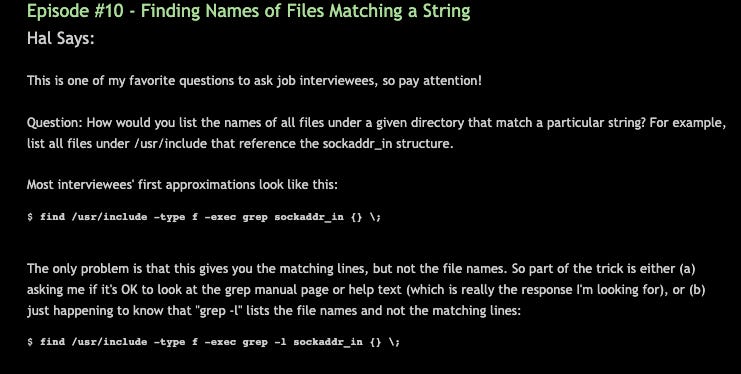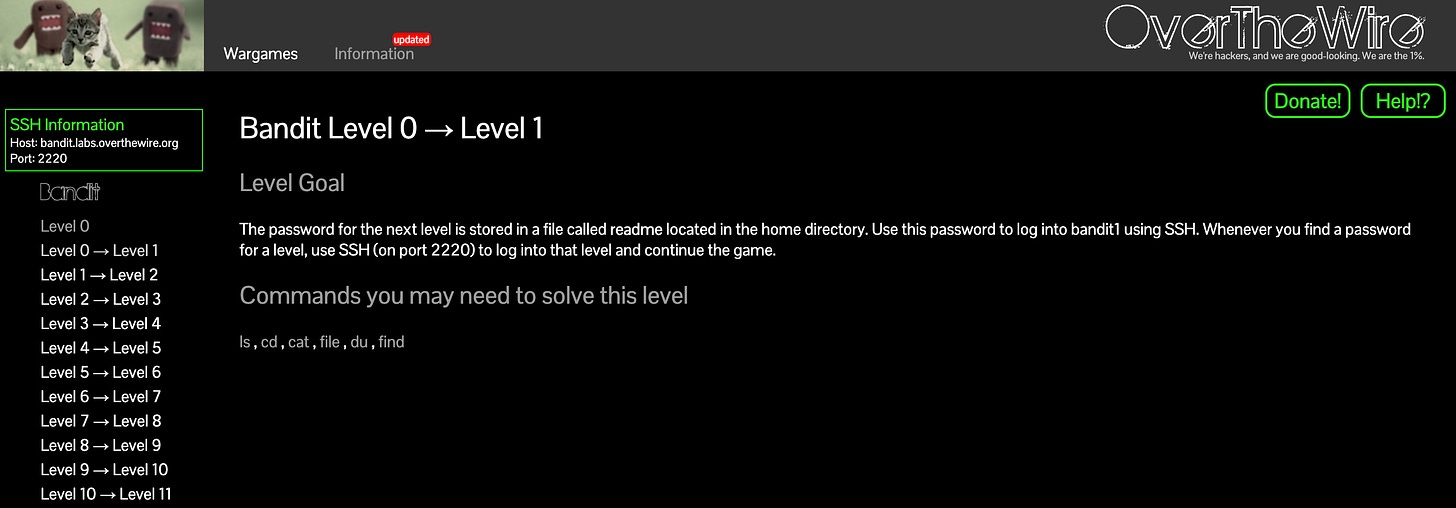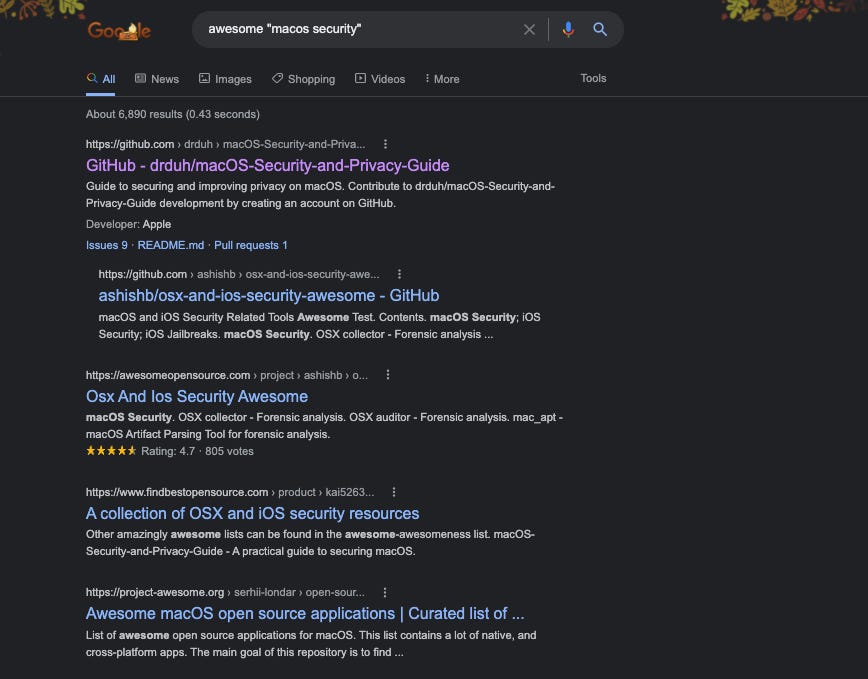FREE Stuff: Cybersecurity Resources To Add To Your Toolset
“If it’s free, take three". “If it’s free, it’s for me” - Unknown
I think there’s a lot of truth to these sayings.
There is a collection of Cybersecurity knowledge out there, with much of it being free.
Over time I’ve had a lot of people ask me what are good resources to dive into learning about Cybersecurity, and I previously put together some resources for the community.
Below is an overview of these resources that won’t cost a dime. Let’s take a look.
Command Line Kung Fu
This is a blog I have recommended to people wanting to get their hands dirty with the command line.
It goes over working through and solving specific problems from the command line.
It focuses on the “how”, with explanations on solutions from experts in the field. I’m a big proponent on doing the fundamentals well.
(You’ll see this theme throughout the resources discussed)
For example, finding names of files matching a particular string. From here, there’s a Linux walkthrough, a Windows walkthrough, and a MacOS one. As you can see in the image, a possible interview question.
Coursera
A MOOC (massive open online course). It has plenty of options for Information Security and courses are free when you audit them. This gives you virtually the same access as paying, just no certificate when you complete it.
In the end, the knowledge you retain will be more important than certificates or certifications, so this could be great way to get started. It also gives you a chance to see if a particular domain within Cybersecurity is right for you or not.
CyberDefenders
This is a hands on platform with Capture the Flags. It has various challenges in security topics and sets of questions to go through. What is unique about this one is it is focused on the Blue team side of things, and can get quite granular.
Another positive of this platform, some of the exercises are similar to interview exercises you may see.
edX
edX is another MOOC (massive open online course) with course options in Cybersecurity.
Like Coursera, it has instructor led courses from top universities.
Some of the universities they partner with for courses include Harvard, Maryland, MIT, and Berkeley.
You can audit courses for free, or opt to pursue the certificate for a fee.
OverTheWire
This is another CTF platform (Capture the Flag) with various challenges in security topics and sets of questions to go through.
Bandit for example, takes you through the command line from basically zero and levels you up by the end, with challenges increasing in difficulty as you go. I recommend this one for folks starting out. After going through it, you will have a versatile skill-set at the command line.
TryHackMe
I would be remiss discussing free Cybersecurity resources without mentioning TryHackMe. A platform many are drawn to when getting their hands dirty or learning the ropes. It’s also a good way to refresh on something you have previously worked on, but could brush up on.
A gamified training platform that has mostly free exercises, with some subscriber-only rooms.
Awesome Compilations
Lastly, this “hack” will work for any Cybersecurity domain and even other domains in tech.
Searching the phrase awesome followed by “literally any security domain” will give you Github compilations of resources for that given topic.
Github is a great resource in general, but using this keyword search will provide immense value when looking for free resources.
For example awesome “malware analysis” or awesome “blue team” or awesome “macos security”. Even if you don’t include Github in your search it should be the top result in google.
From here, checking out these compiled lists will bring you a lot of options to explore.
Udemy
Udemy is another marketplace for online learning.
One of the differences here is these courses are generally made by practitioners and not Universities (like Coursera) . This allows for a different perspective, and a more probable path of being able to reach out to the instructor directly.
There are a lot of courses both free and paid, including my free course on Linux Fundamentals.
I always recommend folks to learn Linux well if they’re getting started in Cybersecurity, and I hope you get a lot of value out of it.
These are some of the many free resources out there (we covered 8), and I encourage you to check them out and see what works for you. From there, you’ll have a good direction to go from.
I hope this overview of free content helps add to your arsenal of resources.
See you in the next one.








